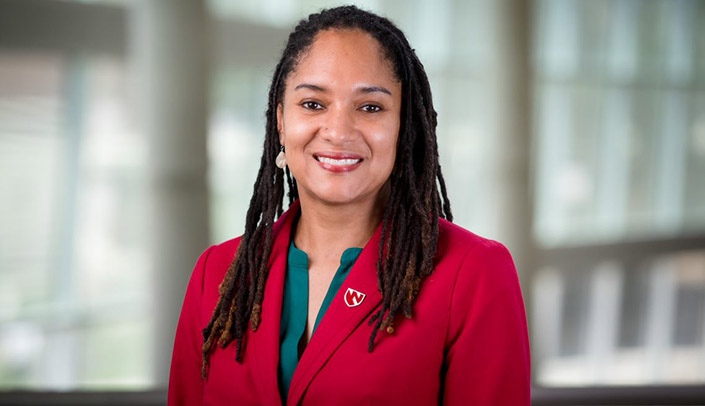Adversity during childhood dramatically affects health across a lifetime.
We’re not, however, talking about failing a test, losing an athletic contest or bad behavior. Rather, studies show that the repeated stress of abuse, neglect, parental mental illness, substance abuse, incarceration, parental divorce and household dysfunction has tangible effects on the development of the brain.
Conducted in the 1990s, the Adverse Childhood Experiences (ACE) study found that people who had experienced difficult or adverse experiences in childhood had a greater risk of both physical and mental health problems during adulthood — to the point of being at triple the risk for heart disease and lung cancer.
“Trauma doesn’t have a color,” said Sheritta Strong, MD, director of the UNMC Office of Inclusion, which hosted last week’s online “Conversations for Inclusive Excellence.” During the hourlong session, nearly 90 attendees explored the ACE scale and its role in understanding the social determinants of health and how it can help providers prevent and treat health outcomes.
An understanding of ACE also benefits non-providers, Dr. Strong said, and can help guide our iTEACH or personal values. It’s important to ask, she said, “how does my culture and my lens affect the way I approach work, family, politics, new information, etc.”
During the session, attendees answered the ACE questionnaire anonymously via an online poll and then watched a brief TEDMED video of pediatrician and California Surgeon General Nadine Burke Harris, MD, discussing the implications of childhood trauma.
“This is beatable,” Dr. Burke Harris said. “We need the courage to look this problem in the face and say this is real and this is all of us.”
Missed the presentation? View a recording.

Hello I am proud of you keep up the good work
Ronnie Powell